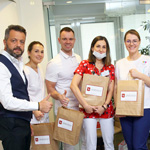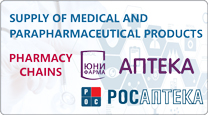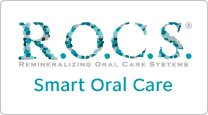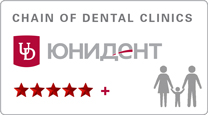Safety in the context of COVID-19
Experts predict the second wave of coronavirus
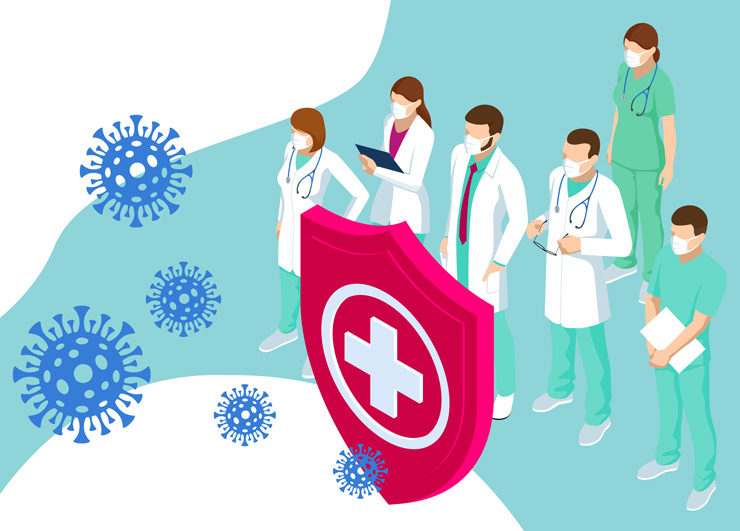
PROTECTION OF PATIENTS
If previously a visit to a clinic started from a coatstand,
today it starts with a sanitizer. These devices, which contain hand sanitizer,
have proven to be one of the most reliable barriers to virus transmission. So
reliable that they will most likely remain in our daily life even after the
pandemic is defeated.
In the clinic, it is recommended to place a sanitizer immediately at the
entrance, in front of the wardrobe and the shoe cover stand. A poster
indicating that first you need to use a sanitizer and then take off your
outerwear and put on shoe covers, and then use the sanitizer again, will help
the patient not to spread the virus around the clinic.
A sanitizer and the instructions on how to use it should also be placed in the
toilet. Often people are unaware of an efficient use of a sanitizer and
soap.
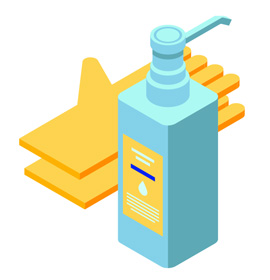 |
And finally, it is recommended to put sanitizers in all offices, right at the
door. The poster should encourage patients to sanitize their hands before and
after visiting the doctor’s office.
All patients should be considered as potential carriers of infection. In order
to prevent carriers of infection from entering the clinic, all patients should
have their temperature measured
When scheduling an appointment or reminding of it, the administrator should
telephone screen all patients for their health, any suspicious symptoms and
visits
The patient should wear a medical face mask outside the doctor's office. To
make sure that the patient’s facemask meets all the necessary requirements, and
he is not wearing one and the same mask for the third day in a row, the clinics
should better purchase the masks and give them to patients at the entrance. The
same applies to gloves.
It is necessary to schedule appointments to minimize the number of patients in
the waiting room. This can be achieved through a regimented scheduling of
appointments. The administrator must explain to the patient that it is
unacceptable to arrive late, due to health care reasons.
During the epidemic, it is highly probable that a patient may get sick or go
PROTECTION OF PERSONNEL
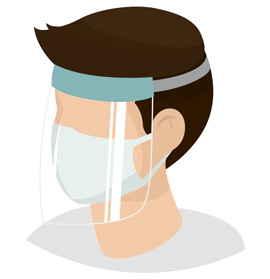 |
The personnel of the clinic should maintain strict personal
hygiene. It is necessary to wash hands with soap, hot or warm water for 20 to
60 seconds, treating the skin between the fingers, thumbs, and inner surfaces.
It is recommended to use a sanitizer after washing hands.
Since antiseptics can dry out the skin, cause cracks and reduce skin protective
functions, it is necessary to actively use hand care products to moisturize
skin.
Until the threat is over, we need to follow simple but effective rules:
regularly measure the temperature of all employees of the clinic, conduct
Among all the specialists it is the dentist who works in the closest contact
with the patient, one of the safety precautions for a doctor is to work in a
medical face mask, goggles, or a face shield. Hair also needs to be covered. It
is necessary to change the mask every 2−3 hours or as soon as it becomes
wet.
If feasible, ensure that necessary conditions are in place
for the personnel to take a shower at the end of the working day. If not,
recommend them to take shower immediately after they get home.
Employees are not recommended to travel long distances during an unfavorable
epidemiological situation. If such a trip did take place, the employee
PROTECTION OF PREMISES
|
Infectious agents concentrate on doorknobs,
telephone cases, and the front desk.
|
Wet mopping of premises should be carried out at least twice
a day,
Door handles, telephone surfaces,
It is necessary to maintain the highest level of hygiene in the doctor’s office
— the place of direct contact between a doctor and a patient.
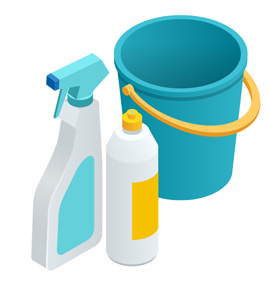 |
The boundaries of the treatment area: the surface of the manipulation table,
arm boards, dental treatment unit, microscope, chip blowers, individual
glasses, dental spatulas and cups for mixing the impression material — must be
cleaned and disinfected after each patient, at the end of the shift and as it
gets dirty.
In addition to standard procedures, during the pandemic, is required to use
bactericidal air irradiators of open and closed type for room disinfection
after each patient.
Manufacturers of air conditioners do not recommend using them in public places
during epidemics. If there is a carrier of infection in the clinic, the air
currents created by air conditioner will accelerate the spread of the virus and
help it spread over a larger area than it can do on its own. Instead of an air
conditioner, it is better to regularly air out the room and turn on the air
extraction system.
R.O.C.S. ® PRO KIDS Electro contains a mineral complex, which is a source of calcium, phosphor, and magnesium (all three being structural elements of tooth enamel), and 12% xylitol.
Back


